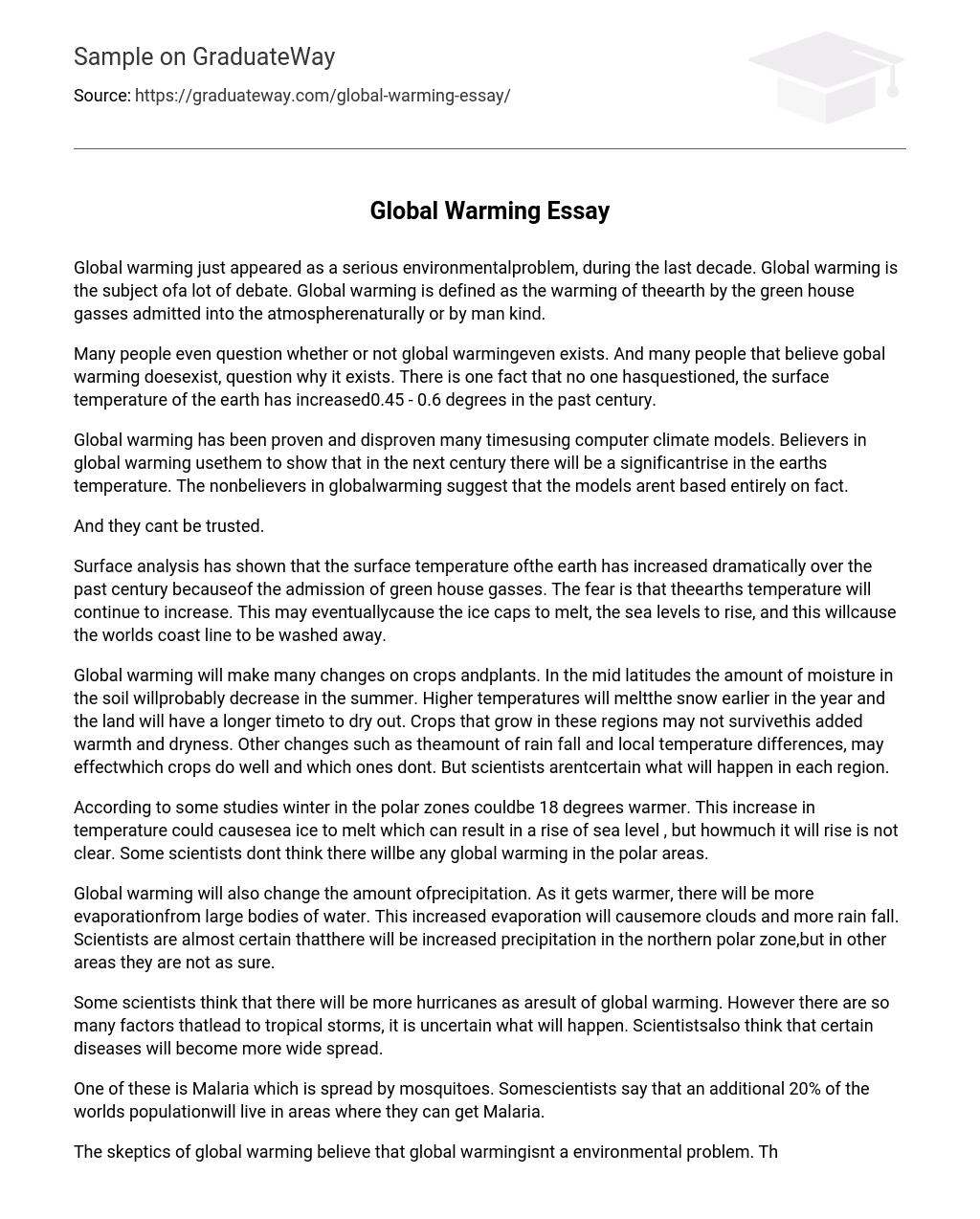Global warming just appeared as a serious environmentalproblem, during the last decade. Global warming is the subject ofa lot of debate. Global warming is defined as the warming of theearth by the green house gasses admitted into the atmospherenaturally or by man kind.
Many people even question whether or not global warmingeven exists. And many people that believe gobal warming doesexist, question why it exists. There is one fact that no one hasquestioned, the surface temperature of the earth has increased0.45 – 0.6 degrees in the past century.
Global warming has been proven and disproven many timesusing computer climate models. Believers in global warming usethem to show that in the next century there will be a significantrise in the earths temperature. The nonbelievers in globalwarming suggest that the models arent based entirely on fact.
And they cant be trusted.
Surface analysis has shown that the surface temperature ofthe earth has increased dramatically over the past century becauseof the admission of green house gasses. The fear is that theearths temperature will continue to increase. This may eventuallycause the ice caps to melt, the sea levels to rise, and this willcause the worlds coast line to be washed away.
Global warming will make many changes on crops andplants. In the mid latitudes the amount of moisture in the soil willprobably decrease in the summer. Higher temperatures will meltthe snow earlier in the year and the land will have a longer timeto to dry out. Crops that grow in these regions may not survivethis added warmth and dryness. Other changes such as theamount of rain fall and local temperature differences, may effectwhich crops do well and which ones dont. But scientists arentcertain what will happen in each region.
According to some studies winter in the polar zones couldbe 18 degrees warmer. This increase in temperature could causesea ice to melt which can result in a rise of sea level , but howmuch it will rise is not clear. Some scientists dont think there willbe any global warming in the polar areas.
Global warming will also change the amount ofprecipitation. As it gets warmer, there will be more evaporationfrom large bodies of water. This increased evaporation will causemore clouds and more rain fall. Scientists are almost certain thatthere will be increased precipitation in the northern polar zone,but in other areas they are not as sure.
Some scientists think that there will be more hurricanes as aresult of global warming. However there are so many factors thatlead to tropical storms, it is uncertain what will happen. Scientistsalso think that certain diseases will become more wide spread.
One of these is Malaria which is spread by mosquitoes. Somescientists say that an additional 20% of the worlds populationwill live in areas where they can get Malaria.
The skeptics of global warming believe that global warmingisnt a environmental problem. They think that the recent increasein the earths temperature is no cause for alarm. And they believethat the earths coast lines and polar ice caps arent in danger ofdisappearing. They believe that the climate models used to proveglobal warming and to predict effects are misrepresented. Theypoint out that according to the models last century should havebeen a lot worse than it was. They also point out that temperatureincreases occurred before wide spread emission of carbon dioxidein the middle of the 20th century. They say that most highertemperature readings are taken in cities or airports wheretemperatures are higher.





